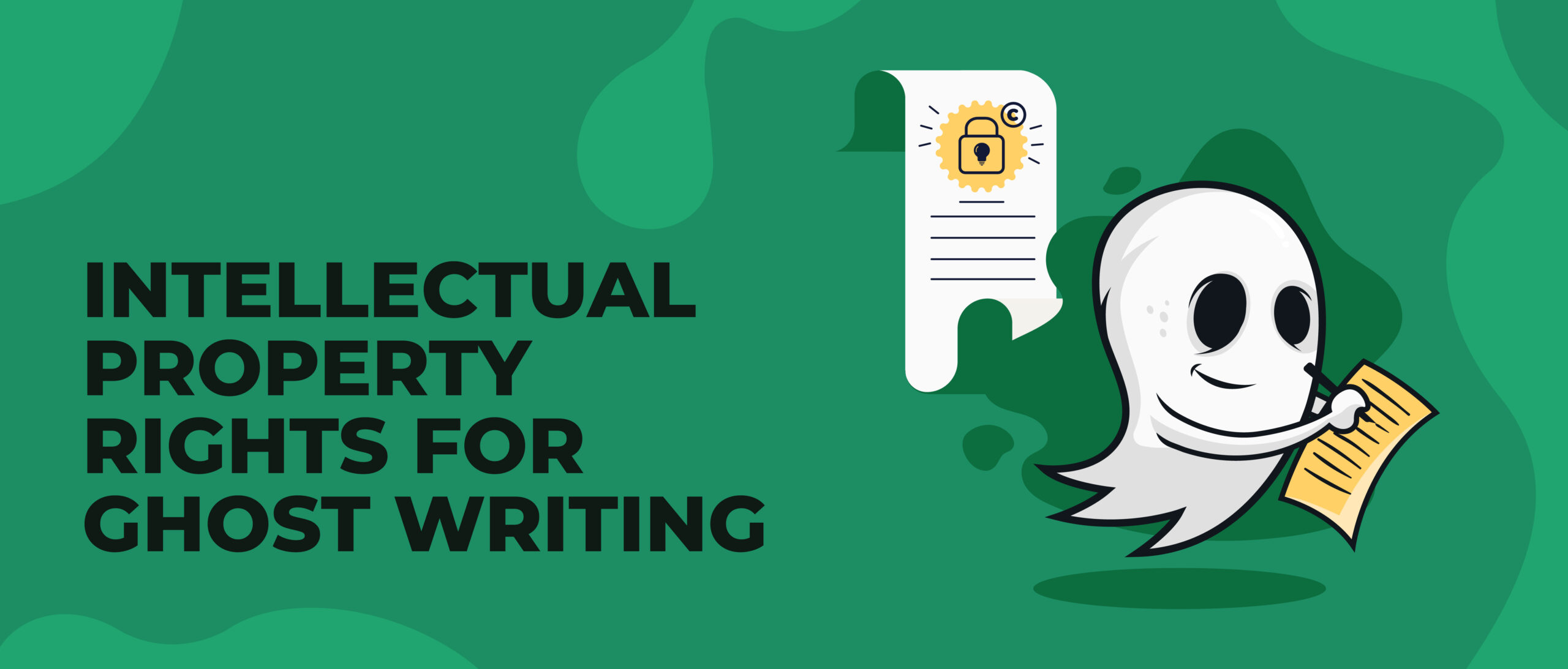Understanding Intellectual Property Rights For Ghostwriting
February 29, 2024 By Amee ParmarGhostwriting has evolved into a vital aspect of literary and content creation, providing a valuable service to those seeking professionally written material without the burden of authorship. This practice, however, raises ethical considerations, particularly concerning intellectual property (IP) rights and relevant laws. Let's delve into the world of ghostwriting, understanding the intricacies of IP law for writers and related legal aspects.
The Art of Ghostwriting
Ghostwriting is a collaborative effort where a skilled writer crafts content on behalf of another, often remaining anonymous or attributing authorship to the client. This service spans various forms, transforming ideas, stories, or expertise into well-articulated pieces, from books and articles to speeches and blog posts.
Understanding Intellectual Property Rights
Intellectual Property Rights, encompassing copyrights, trademarks, and patents, safeguard creative works. In ghostwriting, a clear understanding of how these rights apply to both the ghostwriter and the client is essential.
Copyright Considerations
Ghostwriters typically transfer copyright to the client, emphasizing clarity in agreements regarding the scope of transfer and any limitations on use or distribution.
Attribution and Anonymity
Ghostwriters may remain anonymous, but clear communication is vital for limited attribution, avoiding potential disputes.
Confidentiality Agreements
Establishing confidentiality agreements protects both parties, ensuring non-disclosure of the ghostwriter's involvement and the client's confidential information.
Navigating Ethical Challenges
Transparency is Key
Open communication between ghostwriter and client is fundamental, defining expectations regarding the work's use and attribution.
Fair Compensation
Fair compensation is crucial, and establishing clear payment structures upfront fosters a healthy and ethical working relationship.
Maintaining Professionalism
Ethical ghostwriting upholds professional standards, refraining from projects involving plagiarism or misleading content, where plagiarism law comes into play.
Plagiarism Law for ghostwriters
Plagiarism laws apply to ghostwriters just as they do to any other writers. Plagiarism is the act of presenting someone else's work, ideas, or intellectual property as one's own without proper attribution or permission. Ghostwriters, despite their role in crafting content on behalf of others, are not exempt from plagiarism laws.
For ghostwriters, it is crucial to:
Attribute Properly
Clearly attribute any ideas, phrases, or content sourced from other individuals to avoid plagiarism. This includes proper citation and acknowledgement of the original author.
Avoid Unauthorized Use
Ensure that any content, whether from research materials or client-provided information, is used with proper authorization. Unauthorized use of someone else's work constitutes plagiarism.
Respect Copyright
Respect copyright laws by understanding and adhering to the terms and conditions of use for any materials incorporated into the work. Obtain permission when necessary and be aware of copyright expiration.
Create Original Content
Strive to create original content for the client, avoiding verbatim copying or closely paraphrasing without proper attribution. The essence of ghostwriting is to transform the client's ideas into a unique and authentic piece.
Follow Client Guidelines
Adhere to any guidelines provided by the client regarding the use of existing materials, ensuring that the final work aligns with ethical and legal standards.
Use Plagiarism Detection Tools
Consider using plagiarism detection tools to scan the content for any unintentional similarities with existing works. This proactive approach helps identify and rectify potential issues before the final submission.
While the primary credit for the work may go to the client in ghostwriting, the responsibility to uphold ethical standards and avoid plagiarism lies with the ghostwriter. Engaging in ethical writing practices not only ensures compliance with plagiarism laws but also contributes to a positive and trustworthy professional reputation.
Balancing Client Expectations and Writer Integrity: Finding a balance between meeting client expectations and maintaining writer integrity is essential for a successful partnership. A clear agreement outlining the project scope, intellectual property rights transfer, and confidentiality is crucial.
Intellectual Property Law for Writers: Understanding IP law for writers is paramount, with a focus on copyright law in India and related legal aspects. Navigating these laws ensures a secure and ethical ghostwriting practice.
Ghostwriting, when approached ethically, can be a symbiotic relationship between writers and clients. By navigating the nuances of intellectual property rights and maintaining transparency, both parties can enjoy a collaborative process that respects the contributions of each. As the demand for ghostwriting services continues to grow, a commitment to ethical practices ensures a positive and productive landscape for all involved.
In conclusion, ethical ghostwriting fosters a symbiotic relationship between writers and clients. Navigating intellectual property rights, transparency, and legal considerations ensures a positive landscape for all involved. As the demand for ghostwriting services grows, a commitment to ethical practices is vital. Explore the legal nuances with IP law for writers, copyright law in India, plagiarism law, and consider the expertise and specialized guidance of a reputable IP law firm like Parker and Parker Co LLP for comprehensive legal support.





